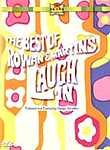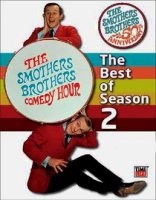To repeat, from Part 1, lest I forget:
DiapersThe first principle is that nobody should be ashamed of thinking a thing funny because it is foreign; the second is that he should be ashamed of thinking it wrong because it is funny. The reaction of his senses and superficial habits of mind against something new, and to him abnormal, is a perfectly healthy reaction. But the mind which imagines that mere unfamiliarity can possibly prove anything about inferiority is a very inadequate mind. — G. K. Chesterton, writing on foreign travel in What Is America?
I thought the diapering world was divided neatly between cloth and disposibles, with elimination communication thrown in as an added wrinkle—which only shows how limited and parochial my world has been. Of course, the whole diaper situation here was planned to be well under control by now, but it has become an issue thanks to a miscommunication with the "diaper lady" reminiscent of my last-minute struggles with Lufthansa's baggage policy. "No, I don't actually sell diapers; I only have samples you can experiment with to help you decide what you like. You can't actually buy them here in Switzerland, and no, I don't have any overseas suppliers to recommend...." (More)
The first principle is that nobody should be ashamed of thinking a thing funny because it is foreign; the second is that he should be ashamed of thinking it wrong because it is funny. The reaction of his senses and superficial habits of mind against something new, and to him abnormal, is a perfectly healthy reaction. But the mind which imagines that mere unfamiliarity can possibly prove anything about inferiority is a very inadequate mind. — G. K. Chesterton, writing on foreign travel in What Is America?
Visiting another country or culture is one thing; living there, even for a few weeks, is another. As a sightseer, it is easy to find something funny and respect it inspite of, or even because of, its apparent oddity. A good attitude can be more difficult when it frustrates the efforts of daily life.
I didn't need to live in a foreign country to experience those frustrations. Soon after arriving in Switzerland, I found myself spinning in a disorientation that had nothing to do with language differences, and at the same time, puzzling over the familiarity of the feeling. Then I remembered the first few weeks after our move from Florida to the Boston area. Boston is a great city, and there's much about Massachusetts that I now miss—a lot, even. Nonetheless, as I was trying to set up housekeeping in our small apartment, searching store after store and making telephone call after telephone call trying to find a source of Rubbermaid storage bins, I was very nearly reduced to tears and a heartfelt cry of, "A Wal-Mart! A Wal-Mart! My kingdom for a Wal-Mart!" Although I eventually came to appreciate what Boston had that Orlando didn't, what was lacking (or apparently lacking) was uppermost in my mind in those days. (I never did find out where Bostonians purchase Rubbermaid storage bins, or even if they use such things at all, but I did eventually find a Wal-Mart.)
Freely admitting that differences are not an indication of inferiority, but with Chesterton's permission to find them peculiar, I will be sharing some of the disorientations and adjustments of my time here.* (More)
The trouble with having a handicap not shared by most people is that no one appreciates it when you have a major victory. If they care about you, they may try, but it's difficult to avoid a "well, duh!" inflection when faced with an accomplishment that is, to you, incomprehensibly easy.
Take Porter along an unknown pathway once, and chances are he will be able to reproduce it. Take me along the same route 10 times, and if I am talking, listening, thinking, or otherwise not paying deliberate, close attention to landmarks and directions—which I find very difficult to do—and I will still have no clue how to get from A to B. Basel is not a large city, but despite several visits I couldn't tell you how to get from Barfüsserplatz to Theaterplatz. (More)
Stephan returned from a business trip, and graciously spent what few minutes he had free to install a new system that not only includes more reliable Internet, but wireless connection! Whoo-hoo! Now I am home away from home! I think it's a good thing—one day without Internet was a nice break, but I'm not ready for a steady diet.
Among many people I know, IKEA seems to be almost a cult store, like Trader Joe's, Whole Foods, and Penzey's. I've come to understand people's devotion to the last three, but had to travel to Switzerland to have the IKEA experience. Part of the fascination here is the reasonable prices: pretty normal by U. S. standards, but worth a special trip here. Or maybe it was the restaurant special: a huge plate of Swedish meatballs, with gravy and lingonberry sauce, plus a mountain of French fries with unlimited ketchup, all for CHF 5. I could have done without the gravy, but the meatballs were very good, the lingonberry sauce terrific, and I hadn't had French fries in ages. Even the shopping was fun, even for this non-shopper, though I suppose I'll have to go to Orlando's IKEA to discover what was the overall IKEA experience and what was due to the local flavor. The meal was my favorite, though—mostly because it was a good time to chat and renew acquaintance with a Swiss friend. Actually, she's not Swiss—she's an American living in Germany—but I meant a friend we only see when visiting Switzerland. (More)
I know, I know, I have many more adventures to write up, but I'm starting with this one, as I think it will be more interesting to most of those for whom I write.
The first adventure of the adventure occurred the day before I left. I suppose I should have discoverd the problem earlier, but I didn't. (More)
Click to enlarge.
Permalink | Read 2420 times | Comments (0)
Category Everyday Life: [first] [previous] [next] [newest]
I wrote about xylitol when I discovered it in Japan four years ago, and that remains one of my most popular posts. Although I did not experiment further with xylitol as a sugar substitute, I continued to use it as a dental rinse, swishing a small spoonful around in my mouth after brushing my teeth at night.
Until I started worrying about the fact that the xylitol I had was made in China, that is. Chinese manufacturers were caught substituting poisonous substances for more expensive, safe ingredients in toothpaste and children's toys, as I wrote about in 2007, and later in baby formula, candy, and other products containing milk. I wrote to the manufacturer of my xylitol, seeking reassurance, but received no answer. (More)
Some of my favorite flags:
Permalink | Read 6095 times | Comments (0)
Category Everyday Life: [first] [previous] [next] [newest]
Visit Stephan's blog to enter your guesses about Little One Stücklin's arrival details. Here's a teaser to help you guess:
Barefoot, (very) pregnant, but that's not their kitchen.
Permalink | Read 2705 times | Comments (0)
Category Everyday Life: [first] [previous] [next] [newest]
The Rest of the Story. The true revolution behind Jamie Oliver's Food Revolution television show was based in Connecticut and played out quietly, behind the scenes, in West Virginia. Oliver still deserves much of the credit—it was his idea and he funded it. We the People deserve less, for preferring a confrontational and hyped-up TV version to the more inspirational true story. (Hat tip to DSTB.) (More)
For reasons obscure (who needs a reason, anyway?) I was looking up mathematician/musician Tom Lehrer and came upon this. Enjoy!
Permalink | Read 2439 times | Comments (1)
Category Just for Fun: [first] [previous] [next] [newest]

 Rowan & Martin's Laugh-In and The Smothers Brothers Comedy Hour
Rowan & Martin's Laugh-In and The Smothers Brothers Comedy Hour
Thanks to Netflix, we're reprising the 1960's. Just a little. Contrary to popular, romantic belief, the 60's and 70's were a difficult and painful time for our country, and while there was some progress made in important arenas, I see those times as watershed years, in which our society turned rapidly for the worse in many ways. I never did like Forrestt Gump; it cuts too close to the bone. Nonetheless, while searching for some clean comic relief, I chose to look backwards, at some "best of" takes on two shows that made me laugh in my high school days.
My memory was confirmed that of the two the Smothers Brothers show was by far the better. I've removed from our queue the remaining Laugh-In disks in the series, but kept two more of the Smothers Brothers. They make me laugh still. Only now, I cry as well. (More)
I'm not sure exactly where I'm going with this resolution, and I really have no business adding another when I haven't made much progress on the others yet. But it's the 8th of the month, and this one intrigues me.
Fear and worst-case-scenario thinking has too much influence in our lives. It's natural: One phone call with really bad news can make one jumpy every time the telephone rings, even though the ratio of bad to good (or at least neutral) calls is very small. It's natural, but it's not right. (More)
Permalink | Read 2721 times | Comments (4)
Category Everyday Life: [first] [previous] [next] [newest]
What could be more American than hot dogs?
Lawsuits, apparently.
I bought a package of hot dogs yesterday. I'm probably a little behind the times—we don't eat hot dogs very often—but since when did they come with warning labels? Not the kind of warning I might expect, e.g. "this product is full of fat and dangerous additives, and is made from parts of the animal you don't want to know about," but the following:
CHOKING WARNING
For children under age 6, cut hot dogs lengthwise and crosswise into small bite-sized pieces. Children should always be seated and supervised while eating.
Come again? You must be six years old to eat a hot dog? I remember the day when hot dog-shaped meat sticks were a staple toddler "first finger food" in the baby food section of the grocery store. Not that we ever bought them: they were disgusting. But there they were. Clearly, somebody sued somebody over a hot dog incident, and now we get warning labels.
The chief problem with such inanities is that they lead to a cavalier attitude towards all warning labels. In between "children under six must have their hot dogs cut into tiny pieces" and "remove plastic from pizza before putting into oven," someone's going to miss "poison—do not drink."
Check out our* Steph Shaw on a very early morning TV gig in New York today. The guy out front who keeps hogging the camera? That's Swedish singer Anders ("the Sting of Stockholm") Holst. Okay, so he's the star and she's the backup. Some folks need to get their priorities straight.
Here's the link. (I can't embed the video.)
Permalink | Read 2366 times | Comments (1)
Category Everyday Life: [first] [previous] [next] [newest]






